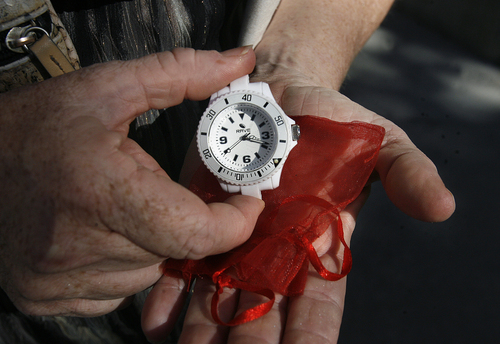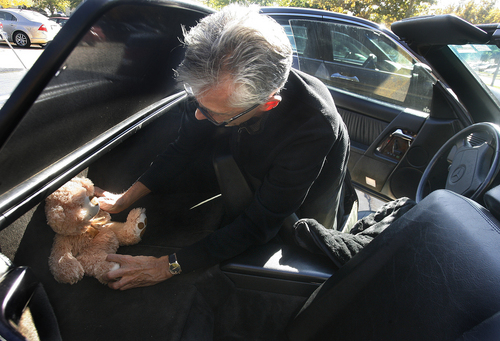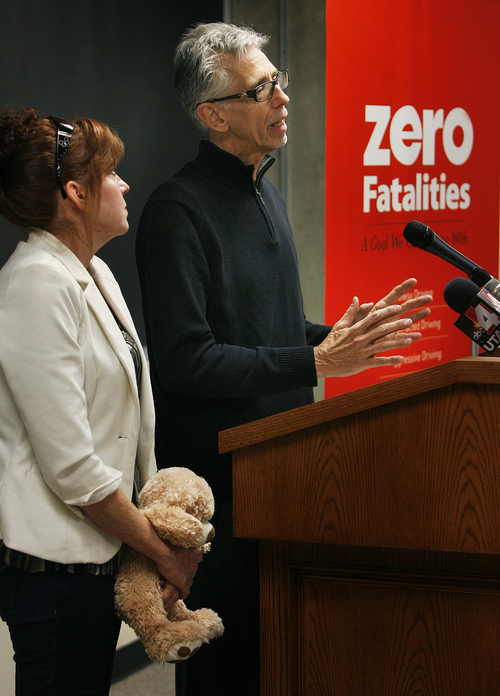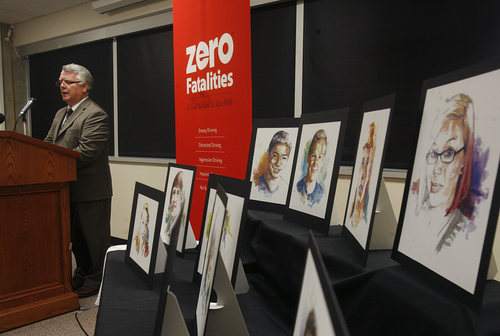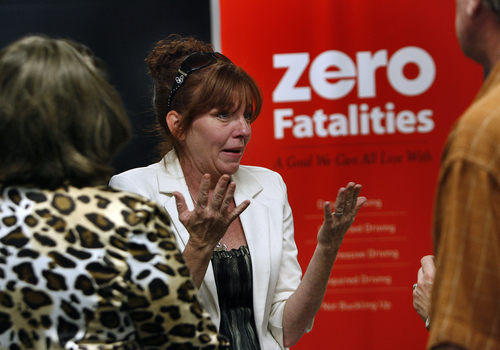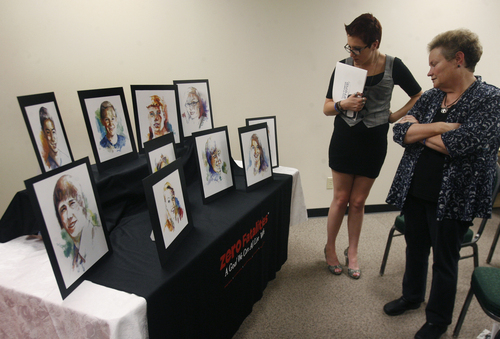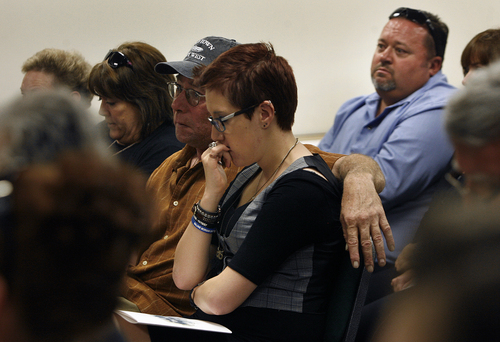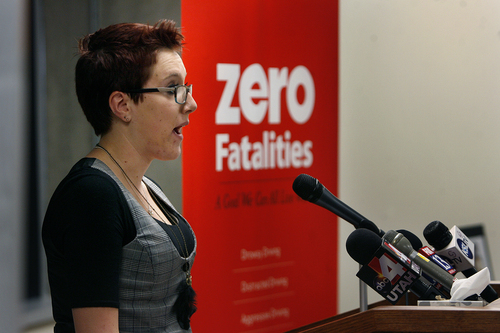This is an archived article that was published on sltrib.com in 2013, and information in the article may be outdated. It is provided only for personal research purposes and may not be reprinted.
Mason Sheeran would still have a twin if she had buckled up.
Malone Sheeran, 16, was driving to her Oakley home after a shift at the hardware store on April 23, 2012, when her SUV rolled off State Road 32. She was ejected from the vehicle and flown to a hospital, but she died the next day.
"If she had been wearing her seat belt, she would have survived with only minor injuries," Mason said. The loss was tough on her, but she soon decided she would do what was in her power to prevent such a tragedy from happening again.
Besides getting involved in the Zero Fatalities campaign at her high school, Mason shared her twin's story at the state health and transportation departments' annual Unfinished Stories press conference Wednesday afternoon. The event is meant to share such stories with the public in an effort to cut down on teen fatalities on the road; crashes are the number one cause of death for teens in the United States.
While 21 teens were killed on Utah roads in 2012, a 34 percent drop since 2008, more than half of them were not wearing seat belts. Teens have the lowest use of the safety restraint of any age group.
The statistics were released Wednesday in a booklet, titled "Unfinished Stories," that details the lives of teens who died in Utah crashes. The state has published a new edition every year since 2008 to distribute at driver's education classes, hoping to convince young drivers to be cautious.
This year's includes 10 of the 21 victims, including Malone. She was always giving of herself through volunteering, cheering people up and raising money to build homes for the less fortunate in Mexico. She was intellectual, too, involving herself in extracurricular academics and conversing with her grandfather about the universe and how life began. She was hoping to major in astrophysics at an out-of-state school.
She suffered massive head trauma in the rollover. Even if she had pulled through, "she would have had a very low quality of life, which, to her, would have been a fate worse than death," her family wrote in the booklet.
Among the 21 victims were four pedestrians, including 18-year-old Zachery Lindley, the booklet's last story.
The White City teen was riding his skateboard when he was hit by a Jeep. Despite months of numerous procedures, including 10 brain surgeries, he died Sept. 12, 2012. He would still be alive if he had been wearing his helmet.
"The loss never goes away," his father, Robert Lindley, said at the news conference. "It leaves a hole in your heart the size of the universe."
Whenever Lindley and his wife see teens riding without helmets and the opportunity presents itself, they tell them Zachery's story.
And now, Lindley always drives with his son's old teddy bear — Wilson — in the backseat, buckled up with a bungee cord, as a reminder to do the same.
Parents who set rules and monitor their teen's driving, in a supportive way, can cut the risk the child will get into a crash in half, according to a Utah Department of Health news release.
Teens are twice as likely to wear seat belts and half as likely to speed when their parents are involved in their driving, according to the Children's Hospital of Philadelphia. They are also 30 percent less likely to talk on a cellphone while driving, according to the hospital.
A copy of the latest edition of "Unfinished Stories" is available at www.health.utah.gov/vipp">http://www.health.utah.gov/vipp.
Twitter: @mikeypanda —
More online
O Find tips about safe driving for teens at www.dontdrivestupid.com">http://www.dontdrivestupid.com.


